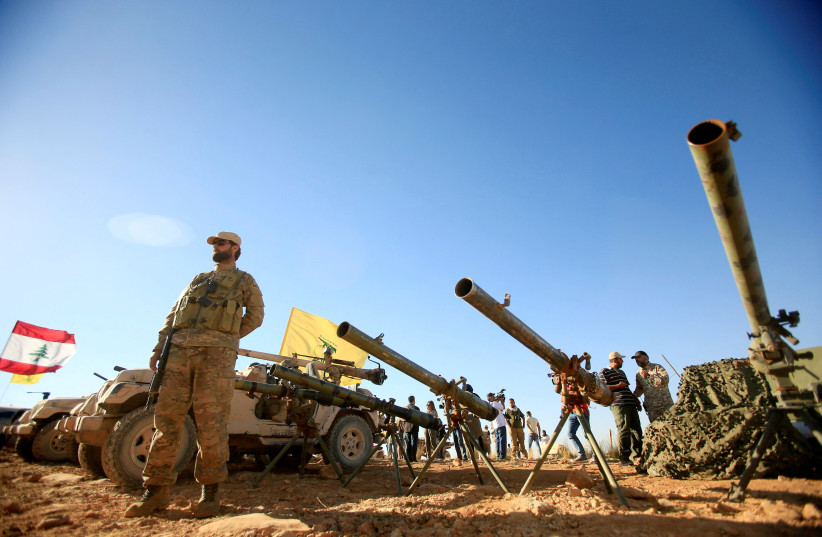Iran increases use of Beirut airport as front for Hezbollah arms storage
The pace at which Iran is supplying powerful rockets to Hezbollah through Beirut’s Rafic Al Hariri International Airport has spiked, London’s Sunday Telegraph reported Sunday.
Tehran has smuggled weapons to the Lebanese terrorist group by air in the past, and they were then stored in Lebanon’s only commercial airport.
But the Telegraph report, based on anonymous airport employees who are seething at Hezbollah for mixing warfare with their civilian airport, makes a clear case that recent months have seen a significant increase in using the airport for storing strategic weapons.
The idea of using the civilian airport as one of its major storage depots appears to be a lateral maneuver by Hezbollah after the 2020 disaster in which many of its strategic explosive weapons exploded inside their storage area at the Port of Beirut.
The explosion destroyed large portions of Beirut, killed nearly 220 people, and turned much of the Lebanese public against Hezbollah for a period of time. Hezbollah was responsible for the disaster because it kept the explosive materials nearby civilian areas.

Hezbollah managed to prevent a full investigation that could have proven it was at fault, however, and it appears that it merely moved its weapons storage to a different civilian location, the airport, so as to throw its accusers off its scent and activities.
Employees detail intimidation and sanctions evasion
“The cache allegedly includes Iranian-made Falaq unguided artillery rockets, Fateh-110 short-range missiles, road-mobile ballistic missiles and M-600 missiles with ranges of over 150 to 200 miles,” the report said.
The airport contains “AT-14 Kornet, laser-guided anti-tank guided missiles (ATGM), huge quantities of Burkan short-range ballistic missile and explosive RDX, a toxic white powder also known as cyclonite or hexagon,” it said.
Further, the report quoted airport employees describing strange, extra-large boxes that started arriving at the airport since the Gaza war started.
Despite sanctions, staff at the airport claim Wafiq Safa, Hezbollah’s second in command and the head of its security apparatus, has frequented the airport of late.
“Wafiq Safa is always showing up at customs,” one whistle-blower claimed, citing close relationships with the customs managers. “I feel like if we don’t do what they say, our families will be in danger.”
Lebanese airport employees described a situation in which they are practically held hostage by Hezbollah, which will kill anyone who gets in its way.
Only international intervention could force Hezbollah to return the airport to its purely civilian status, they said.Until that time, the Lebanese employees said they were worried about the Israeli military attacking the airport because weapons stored there would be used against Israel in the ongoing war.





Comments are closed.